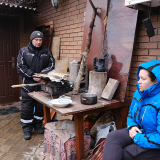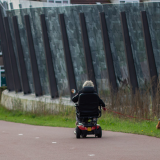
Životné podmienky a kvalita života
Životné podmienky a kvalita života sú jednou zo šiestich hlavných aktivít pracovného programu nadácie Eurofound na obdobie 2021 – 2024. Eurofound bude naďalej mapovať a analyzovať kľúčové aspekty súvisiace so zlepšovaním životných podmienok ľudí v Európe vrátane informácií o ich vnímaní kvality života a spoločnosti. Keďže Ochorenie COVID-19 pandémia a následná hospodárska kríza hlboko ovplyvnili životy ľudí, Eurofound bude ďalej skúmať vplyv tejto krízy na občanov EÚ v rôznych životných etapách.
V priebehu rokov 2021 – 2024 výskum nadácie Eurofound poskytne dôležité informácie o výzvach a perspektívach v oblasti životných podmienok a kvality života v EÚ a o úlohe, ktorú zohrávajú rôzne iniciatívy zamerané na zmiernenie sociálnych ťažkostí rôznych skupín občanov. Osobitným záujmom sú dôsledky pre starších ľudí a potreby starostlivosti, mládež a ich sociálne začlenenie a sociálna mobilita, ako aj rôzne dôsledky krízy pre mužov a ženy .
Verejné služby v celej EÚ zohrávali hlavnú úlohu pri riešení krízy COVID-19, pričom čelili značným výzvam a budú podrobnejšie posúdené so zameraním na otázky týkajúce sa kvality, prístupu a cenovej dostupnosti. Ako ukázali predchádzajúce zistenia, kríza mala neúmerné účinky na určité skupiny podľa veku, opatrovateľských povinností a rovnováhy medzi pracovným a súkromným životom . Eurofound to bude ďalej analyzovať.
V spolupráci s Európskym inštitútom pre rodovú rovnosť (EIGE) má Eurofound v úmysle realizovať výskum viacrozmerného rodového rozdielu a skúmať vplyv krízy COVID-19 na mužov a ženy z hľadiska zamestnanosti, hmotných životných podmienok a kvality životných podmienok. Cieľom je zistiť odlišnosti a posúdiť vplyv na rodové rozdiely.
- Infografika: Životné podmienky a kvalita života v EÚ
„Kvalita verejných služieb bola kľúčom k formovaniu dôvery v inštitúcie súčasnej Európy a bude zohrávať zásadnú úlohu pri prekonávaní súčasných a budúcich výziev. Kvalitné služby sú takisto oblasťou inovácií, najmä pri prechode na digitálne služby, ktoré sú šetrnejšie k životnému prostrediu, a pripravenosti na riziká, ako je pandémia, v budúcnosti.“
Tadas Leončikas, vedúci manažér pre výskum, oddelenie sociálnych politík






















